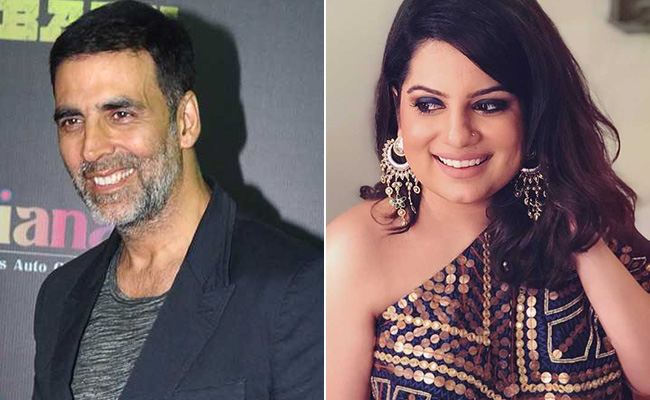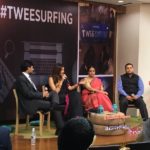“Sexual harassment is complex, subtle and highly subjective”- Kathie Lee Glifford
We couldn’t have found a better quote explain the current situation involving comedian Mallika Dua and actor Akshay Kumar.
Recently a leaked video from Star Plus’s show The Great Indian Laughter Challenge (featuring both Dua and Kumar as judges), did the rounds, which had Akshay Kumar telling Mallika Dua “Mallika Ji aap bell bajao, main aapko bajata hun”. This caused senior journalist Vinod Dua (Mallika’s father), to put out the following Facebook post – which was later removed due to copyright concerns, as the said clip wasn’t aired yet.
Sorry to quash your hunger for sensationalism but Facebook and perhaps a copyright claim had it removed. Find something better to do. pic.twitter.com/c9zwEslJgA
— Mallika Dua (@MallikaDua) October 26, 2017
While both Mallika and her father have removed their posts, the story doesn’t end there. Mallika was trolled endlessly by fans of Akshay Kumar. The trolls abused her on the basis of her father’s political stance, her portrayal of sexually explicit characters, called her statements as ‘publicity seeking’, and lacking in humour.
Stardom ke liya sab kar rahe tabhi show say nikal diya ge akshay pajji king of bollywood
— AKASH KUMAR (@AKASHKU55143417) October 26, 2017
Akshay ka naam leke famous ho gyi ye to. Jb akki bola tha tb to bde daant faad rhi thi tu moti
— Tyler Durden (@IamTylersDream) October 26, 2017
Like seriously?where is your descency in your videos? That time you ain’t uncomfortable ? Double standards woman
— shubhi (@goyal202) October 26, 2017
In response, Mallika has written a blog, which clarifies her stance. This incident, famous people notwithstanding, is a classic example of what happens when women speak up against sexual harassment. They are told to shut up, and the authenticity of their claims is often doubted. While Mallika Dua is a celebrity, and has many public figures speaking out in her support, there are millions of women across the world who face such incidents, and more severe experiences, on a daily basis, yet are told to keep quiet. Sexual harassment in the homes, at the workplace, in public spaces and on social media platforms, is a reality far more common than any of us truly can fathom. The recent #MeToo campaign, which brought together hordes of personal experiences of sexual harassment from women across the world, is proof of that. However, what is sad is that women are still not believed at the first go. They are initially almost always doubted, and only when they have ‘verified’ their claims, and have men supporting them, are their experiences taken to be real. We have internalized sexualization of women to such a degree, courtesy our jokes, abuses, and song lyrics, that when harassment actually takes place, we are desensitized, and choose to shun it. Instead, as a society, we engage in victim blaming.


As Mallika rightly put in her blog “This isn’t about Akshay Kumar. This is about every big Bollywood star and every other big shot, who cannot tell the difference between charm and harm. This is about every big celebrity who thinks his colleague enjoys being grabbed by the waist and twirled without her consent. This is about workplace etiquette for everybody, men and women included, and about understanding the idea of professional communication so we don’t make someone uncomfortable in their place of work, unintentionally or otherwise.”
As an organization working for safety of women in all the spaces – domestic, workplace, public spaces and online platforms- we denounce this incident, not only for the actual sexual harassment and objectification of a woman which has taken place, but also of the trolling which resulted. Due to the fear of offline and online harassment as a result of voicing their opinions, many women are skeptical to enter and engage in online spaces. For society to truly evolve and be gender equal, this needs to change. Through our #SocialSurfing & #Tweesurfing collaborations, our aim is to inculcate a culture of cyber etiquette and online safety, which would encourage greater female participation in the cyber space.




